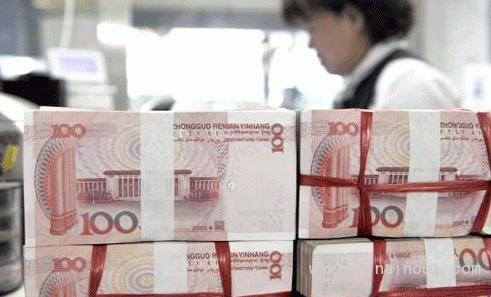全球外匯儲備總量中,約95%投資在4種貨幣上:美元,、歐元,、日元以及英鎊。“四大貨幣”的央行如今都在擴大資產(chǎn)負(fù)債表,,或多年都在這么做而沒有即刻轉(zhuǎn)變的跡象,。它們都試圖把龐大的債務(wù)問題轉(zhuǎn)化為通脹問題,當(dāng)它們成功時,,它們的貨幣將大幅走低,。
在這場貨幣戰(zhàn)爭中,新興市場的央行承擔(dān)著遭受最大間接傷害的風(fēng)險,。它們的儲備——以四大幣持有的儲備占了大部分——在購買力方面將大幅縮水,。一旦這些貨幣的貶值努力真的生效,整個世界將迫切希望有其他可供選擇的貨幣來作為傳統(tǒng)儲備貨幣的替代品,。
目前為止,,只有一個國家似乎發(fā)現(xiàn)了這種形勢下蘊藏的機遇,那就是中國,。其他國家大多只是心驚膽戰(zhàn)地注視著美元走向,。
在不太遙遠(yuǎn)的未來,中國的人民幣將成為一種全球儲備貨幣,。中國將從中受益匪淺——不僅其貨幣的穩(wěn)定性將大大提高,,而且中國也將不再需要太多外匯儲備。那時超額外匯儲備可以用于主權(quán)財富基金,,包括亞洲基礎(chǔ)設(shè)施投資銀行(AIIB),。最后,中國將可以增加消費,,因為它不再需要為了保持高水平的外匯儲備而抑制國內(nèi)需求,。
但是,全世界需要更多的新儲備貨幣,,而不僅僅是人民幣,。這意味著,墨西哥,、巴西,、印度等其他大型新興市場國家也可以從中國如今正在利用的機遇中獲益。憑借合理的規(guī)劃以及謹(jǐn)慎的政策實施,,它們的貨幣也可以成為全球儲備貨幣,。
新興市場央行的技術(shù)專家已經(jīng)意識到了這些問題,但在說服各自的理事會有必要將儲備多元化方面仍面臨巨大挑戰(zhàn),。這也是中國的行動如此重要的原因,。人民幣上升為儲備貨幣,將展現(xiàn)出減少四大貨幣儲備,、實現(xiàn)儲備多元化的巨大好處,。隨著中國的外匯儲備成為真正的“超額”儲備,中國很快將不得不拋售美國國債,。它很可能會尋求將這部分資金投資在不那么主流的貨幣上,。作為回報,其他新興市場央行最終將購入人民幣。新興市場每一個主要央行都將外匯儲備多元化,,不僅將有利于其他新興市場貨幣,,也將有助于所有新興國家降低對四大量化寬松(QE)貨幣的過度敞口。(中國進(jìn)出口網(wǎng))
 Some 95 per cent of all global foreign exchange reserves are invested in just four currencies: the US dollar, the euro, the yen and sterling. The central banks of the ‘Big Four’ are all expanding their balance sheets or have been doing so for years with no sign of immediate reversal. They are all trying to convert huge debt problems into inflation problems, and when they succeed their currencies will weaken sharply.
Some 95 per cent of all global foreign exchange reserves are invested in just four currencies: the US dollar, the euro, the yen and sterling. The central banks of the ‘Big Four’ are all expanding their balance sheets or have been doing so for years with no sign of immediate reversal. They are all trying to convert huge debt problems into inflation problems, and when they succeed their currencies will weaken sharply.
In this currency war, EM central banks risk suffering the most collateral damage. Their reserves – so many of them held in the big four currencies – will be decimated in purchasing power terms. The world will become desperate for alternative currencies to act as replacements for the traditional reserve currencies once their currency debasement efforts really take root.
So far, only one country, China, appears to have spotted the opportunities presented by this situation. Most others merely watch the dollar in fear.
China’s renminbi will become a global reserve currency in the not too distant future. China will benefit enormously from becoming a global reserve currency – not only will its currency become far more stable, but China will also no longer need so many reserves. The excess reserves can then be used for sovereign wealth fund purposes, including the AIIB. Finally, China will be able to increase consumption, because it no longer needs to suppress domestic demand in order to maintain high levels of reserves.
But the world will need more new reserve currencies than just the renminbi. This means that other large EM countries such as Mexico, Brazil, India and others could also benefit from the opportunity that China is now exploiting. With sensible planning and prudent policy implementation, they too can become global reserve currencies.
Technocrats in EM central banks are aware of these issues but face tremendous challenges in convincing their boards of the need to diversify into other currencies. That is why China’s move is so important. The renminbi’s ascent to reserve currency status will demonstrate the huge benefits of diversifying away from the ‘Big Four’ currencies. China will soon have to sell treasuries as its reserves become true ‘excess’ reserves. It is likely to seek to invest the cash in less mainstream currencies. Other EM central banks will ultimately reciprocate by buying renminbi. As each major EM central bank diversifies, not only will it be good for other EM currencies, it will also help all of them to reduce their excess exposures to the ‘Big Four’ QE currencies.
在這場貨幣戰(zhàn)爭中,新興市場的央行承擔(dān)著遭受最大間接傷害的風(fēng)險,。它們的儲備——以四大幣持有的儲備占了大部分——在購買力方面將大幅縮水,。一旦這些貨幣的貶值努力真的生效,整個世界將迫切希望有其他可供選擇的貨幣來作為傳統(tǒng)儲備貨幣的替代品,。
目前為止,,只有一個國家似乎發(fā)現(xiàn)了這種形勢下蘊藏的機遇,那就是中國,。其他國家大多只是心驚膽戰(zhàn)地注視著美元走向,。
在不太遙遠(yuǎn)的未來,中國的人民幣將成為一種全球儲備貨幣,。中國將從中受益匪淺——不僅其貨幣的穩(wěn)定性將大大提高,,而且中國也將不再需要太多外匯儲備。那時超額外匯儲備可以用于主權(quán)財富基金,,包括亞洲基礎(chǔ)設(shè)施投資銀行(AIIB),。最后,中國將可以增加消費,,因為它不再需要為了保持高水平的外匯儲備而抑制國內(nèi)需求,。
但是,全世界需要更多的新儲備貨幣,,而不僅僅是人民幣,。這意味著,墨西哥,、巴西,、印度等其他大型新興市場國家也可以從中國如今正在利用的機遇中獲益。憑借合理的規(guī)劃以及謹(jǐn)慎的政策實施,,它們的貨幣也可以成為全球儲備貨幣,。
新興市場央行的技術(shù)專家已經(jīng)意識到了這些問題,但在說服各自的理事會有必要將儲備多元化方面仍面臨巨大挑戰(zhàn),。這也是中國的行動如此重要的原因,。人民幣上升為儲備貨幣,將展現(xiàn)出減少四大貨幣儲備,、實現(xiàn)儲備多元化的巨大好處,。隨著中國的外匯儲備成為真正的“超額”儲備,中國很快將不得不拋售美國國債,。它很可能會尋求將這部分資金投資在不那么主流的貨幣上,。作為回報,其他新興市場央行最終將購入人民幣。新興市場每一個主要央行都將外匯儲備多元化,,不僅將有利于其他新興市場貨幣,,也將有助于所有新興國家降低對四大量化寬松(QE)貨幣的過度敞口。(中國進(jìn)出口網(wǎng))

In this currency war, EM central banks risk suffering the most collateral damage. Their reserves – so many of them held in the big four currencies – will be decimated in purchasing power terms. The world will become desperate for alternative currencies to act as replacements for the traditional reserve currencies once their currency debasement efforts really take root.
So far, only one country, China, appears to have spotted the opportunities presented by this situation. Most others merely watch the dollar in fear.
China’s renminbi will become a global reserve currency in the not too distant future. China will benefit enormously from becoming a global reserve currency – not only will its currency become far more stable, but China will also no longer need so many reserves. The excess reserves can then be used for sovereign wealth fund purposes, including the AIIB. Finally, China will be able to increase consumption, because it no longer needs to suppress domestic demand in order to maintain high levels of reserves.
But the world will need more new reserve currencies than just the renminbi. This means that other large EM countries such as Mexico, Brazil, India and others could also benefit from the opportunity that China is now exploiting. With sensible planning and prudent policy implementation, they too can become global reserve currencies.
Technocrats in EM central banks are aware of these issues but face tremendous challenges in convincing their boards of the need to diversify into other currencies. That is why China’s move is so important. The renminbi’s ascent to reserve currency status will demonstrate the huge benefits of diversifying away from the ‘Big Four’ currencies. China will soon have to sell treasuries as its reserves become true ‘excess’ reserves. It is likely to seek to invest the cash in less mainstream currencies. Other EM central banks will ultimately reciprocate by buying renminbi. As each major EM central bank diversifies, not only will it be good for other EM currencies, it will also help all of them to reduce their excess exposures to the ‘Big Four’ QE currencies.











